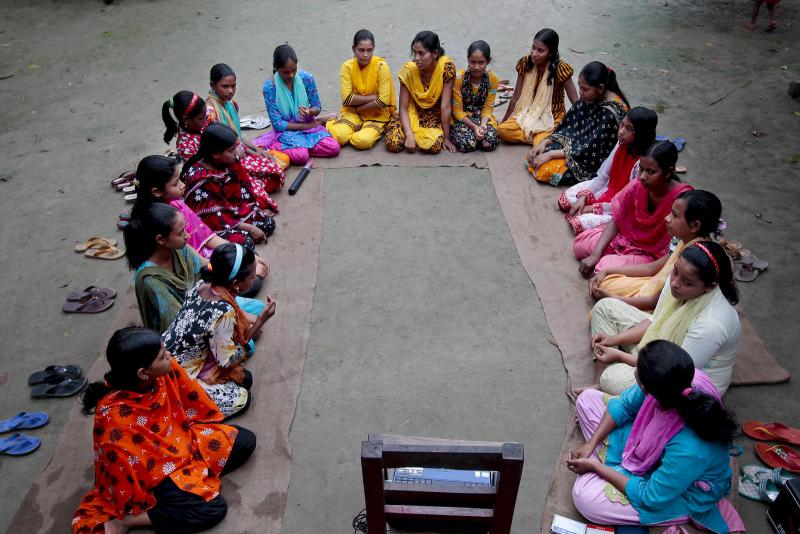One of the most profound social transformations of the past century is in the status of women, and importantly, in the worldwide acceptance of the notion of women's rights and gender equality as desirable goals.

This incredible change has occurred not by accident but by design – through the conscious and determined struggles of courageous women and the movements they have built. Through their activism and advocacy, our very understanding of what constitutes social justice has been indelibly altered, and the once seemingly normal forms of gender-based discrimination, violence, and exclusion are now at least recognised as problems, if not resolved.
The recent and increasing focus on and awareness of the challenges affecting women, girls and, increasingly, transgender people worldwide has contributed to a strong interest in "investing" in women and girls by corporate donors and new private philanthropists. This "arrival" of women and girls into mainstream development represents an opportunity to advance women's rights. But it also presents new challenges.
Many of these newer actors approach women and girls without addressing the root causes of gender inequality – essentially treating as technical, processes of change that are fundamentally political.
Other donors, including those that were once strong supporters of gender equality work, have in turn shifted towards short-term, results-oriented strategies that appear to show faster, concrete results, but which are often not sustainable, nor do they tend to address the causes of gender discrimination in the first place.
And the existence and important contributions, knowledge and experience of feminist and women's rights organisations and movements around the world are often rendered completely invisible or unimportant – despite the fact that evidence shows sustainable advances in women's, girls' and transgender people's rights are a direct result of their efforts
Research by Awid in 2011 showed the median annual income of more than 740 women's organisations around the world was only $20,000 (£12,000). The combined income of those same 740 women's organisations was $106m, which represents just 34% of the total budget of Greenpeace worldwide. Current approaches are watering the leaves while starving the roots of the sustained, collective action by women's rights activists and organisations at the centre of advances throughout history.
Evidence studying the impact of the Dutch government's MDG3 - millennium development goal 3 - fund on women's rights demonstrates that given adequate resources, organisations committed to women's rights are able to address comprehensively the factors that lead to sustained shifts in gender power relations, and to do so on an unprecedented scale.
This evidence, along with Mama Cash's work over the past 30 years funding and supporting feminist groups and movements worldwide, also shows that successful gains in gender equality have occurred as a result of serious investment of resources by far-sighted donors, governments, and philanthropists in the agendas and strategies chosen by the organisations and movements in the frontline of these struggles, not the strategies chosen by the donors who supported them.
The collective experience of five decades of women's rights organising has shown that supply-driven approaches – giving individual girls or women schooling, jobs, loans, access to political office, or legal redress, or example – may empower women individually, but do not necessarily translate into a better deal for other women. Deeper and more inclusive change in the status of women can only be achieved by demand-driven approaches – by mobilising women and building their collective power to act together for their vision of a more just society.
Even when women's rights organisations and movements catalyse transformative change, these gains must be defended, protected, and sustained. Today, women's rights victories that were won decades ago are under fresh threat of reversal as backlash against the advances made by women are being witnessed around the world, from the most developed to the most impoverished countries and societies. In many cases women's rights organisations and strong women's movements are the critical force fighting to protect past gains.
2224x1253.jpg)